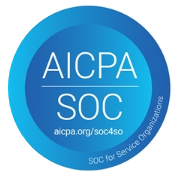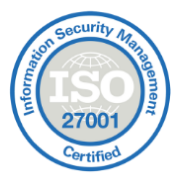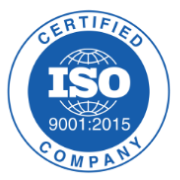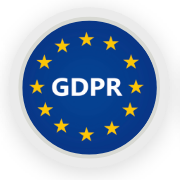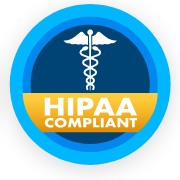In today’s rapidly changing business landscape, fostering continuous learning and professional development is essential for organizations to stay competitive. A Learning Management System (LMS) offers a powerful solution to streamline training programs and empower employees with convenient access to valuable resources. Setting up an LMS within your organization requires careful planning and execution. In this guide, we will delve into the fundamental steps to establish an effective LMS tailored to your specific needs. Join us on this professional journey to unlock the potential of a robust learning infrastructure that will elevate your organization’s growth and success.
What is a Learning Management System?
A Learning Management System (LMS) is like a digital headquarters for training and education within an organization. It’s a platform that brings everything together in one place, making it easier for administrators to create and manage courses, distribute learning materials, and keep track of learners’ progress. With an LMS, you can do effective things like create quizzes and discussions, share videos and other interactive content, and generate reports to see how everyone is doing. It’s a powerful tool that helps organizations deliver engaging learning experiences, keep everyone on the same page, and promote continuous growth and development.
Who use LMS?
Looking for LMS Development? Contact us today to discuss your project
Features of Learning Management System
Assessments and Grading:
The feature to create and administer quizzes, exams, assignments, and assessments, with automated grading and feedback capabilities.
Progress Tracking and Reporting:
The capability to track learners’ progress, monitor course completion, and generate comprehensive reports on learner performance, engagement, and course effectiveness.
Communication and Collaboration Tools:
Built-in communication tools like discussion forums, messaging systems, and announcements to facilitate interaction between instructors and learners, as well as peer-to-peer collaboration.
Mobile Compatibility:
The ability to access the LMS and complete courses on mobile devices, providing flexibility and accessibility for learners.
Integration Capabilities:
The option to integrate with other systems, such as HR software, content authoring tools, video conferencing platforms, and authentication systems, to enhance functionality and streamline workflows.
Gamification:
Optional gamification elements, such as badges, leaderboards, and rewards, to increase learner engagement and motivation.
Security and Privacy:
Robust security measures to protect sensitive learner data, including secure login authentication, data encryption, and compliance with privacy regulations.
Why does your organization need an LMS?
Centralized Learning Hub:
An LMS provides a centralized platform where all learning resources, courses, and training materials can be stored, organized, and accessed by employees or learners. This eliminates the hassle of managing multiple systems or relying on fragmented sources of information.Streamlined Training Management:
With an LMS, you can efficiently manage and streamline training programs. Administrators can easily create and update courses, track learner progress, schedule training sessions, and automate reminders and notifications. This saves time and resources compared to manual training management processes.Flexible and Convenient Learning:
An LMS offers flexibility in terms of when and where employees can access training materials. They can learn at their own pace, fitting training into their schedules without disrupting daily operations. This convenience increases engagement and knowledge retention.Enhanced Employee Development:
An LMS facilitates continuous professional development by offering a range of learning resources, including online courses, webinars, and interactive content. It allows employees to acquire new skills, stay updated with industry trends, and improve job performance, leading to career growth and increased job satisfaction.Consistent and Standardized Training:
An LMS ensures that all employees receive consistent training materials and standardized information across the organization. This promotes a cohesive learning experience and helps maintain compliance with regulations and industry standards.Performance Tracking and Analytics:
LMS platforms provide comprehensive tracking and reporting features that allow administrators to monitor learners’ progress, identify knowledge gaps, and assess the effectiveness of training programs. This data-driven approach helps make informed decisions for optimizing training initiatives and improving overall performance.Cost and Time Efficiency:
Implementing an LMS can save costs associated with traditional classroom training, such as travel expenses, venue rentals, and printed materials. Moreover, it reduces the time required for training coordination and administration, enabling employees to focus on their core responsibilities.Scalability and Growth:
An LMS can easily accommodate evolving training needs as organizations expand or undergo changes. New courses or modules can be added, and the system can handle many users, making it a scalable solution for long-term growth.Which is Better Readymade or Custom LMS?
The choice between a readymade or custom Learning Management System (LMS) depends on the specific needs and resources of the organization. In most cases, a readymade LMS is the ideal choice. It offers a pre-built platform with a wide range of features, quick implementation, and lower upfront costs. Readymade LMS solutions often come with regular updates, technical support, and a user-friendly interface. They are suitable for organizations that require standard functionalities and have limited time and budget for customization. On the other hand, a custom LMS is recommended for organizations with unique or complex requirements that off-the-shelf solutions cannot fully meet. Customization allows for tailored features, integrations, and branding, providing a more personalized and seamless user experience. However, it involves higher costs, longer development time, and ongoing maintenance. Ultimately, the decision should be based on the organization’s specific needs, budget, and timeline for implementation.
How to develop LMS platform for your enterprise?
Research and Select the Platform:
Conduct thorough research on LMS platforms available in the market, including Paradiso enterprise LMS. Evaluate their features, pricing, scalability, and customer reviews. Choose the platform that best aligns with your organization’s requirements and budget.
Platform Implementation:
Once you have selected the LMS platform, begin the implementation process. This involves setting up the platform, configuring the settings, and integrating it with other systems if necessary. Ensure that the platform is customized to reflect your organization’s branding and tailored to your specific training needs.
Staff Training:
Provide comprehensive training to staff members who will be using the LMS. Conduct training sessions, workshops, or online tutorials to familiarize them with the platform’s features, functionalities, and workflows. Offer hands-on practice and guidance to ensure they feel comfortable navigating and utilizing the LMS effectively.
Continuous Support:
Establish a support system to assist staff members with any questions, issues, or technical difficulties they may encounter while using the LMS. Provide ongoing support through channels such as email, chat, or a dedicated helpdesk. Regularly communicate updates, tips, and best practices to enhance staff engagement and adoption of the LMS.
Collecting Feedback:
Implement a feedback mechanism to gather input from staff members on their experience with the LMS. This can be done through surveys, focus groups, or one-on-one feedback sessions. Encourage open and honest feedback regarding the LMS platform’s usability, functionality, and overall satisfaction.
Analyze and Act on Feedback:
Analyze the feedback collected and identify any common themes, suggestions, or concerns. Use this feedback to make necessary improvements and optimizations to the LMS platform. Address any issues or challenges raised by staff members promptly and transparently.
Continuous Improvement:
As you gather feedback and improve, ensure a continuous improvement cycle. Regularly assess the effectiveness of the LMS platform, evaluate user satisfaction, and implement enhancements based on evolving needs and emerging technologies.
What is White Label LMS? And why should you consider it?
White Label LMS refers to a learning management system that can be customized and rebranded with an organization’s branding and logo. By choosing a white-label LMS, you can create a seamless learning experience that aligns with your brand identity, enhances credibility, and fosters a sense of ownership. It allows you to present a cohesive and consistent training platform to your learners while maintaining full control over the user experience and a professional image.













